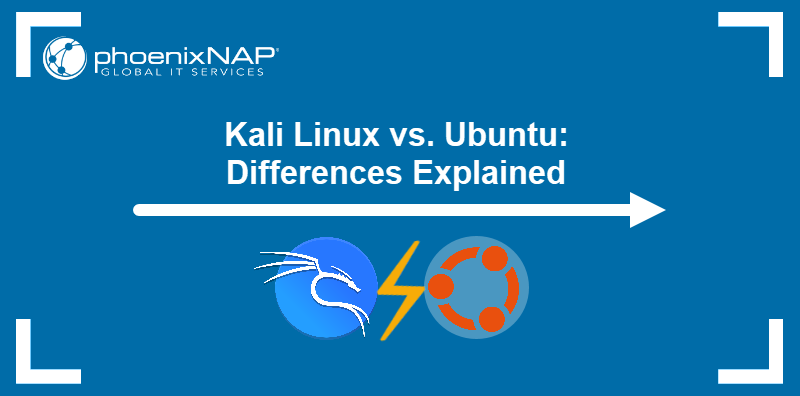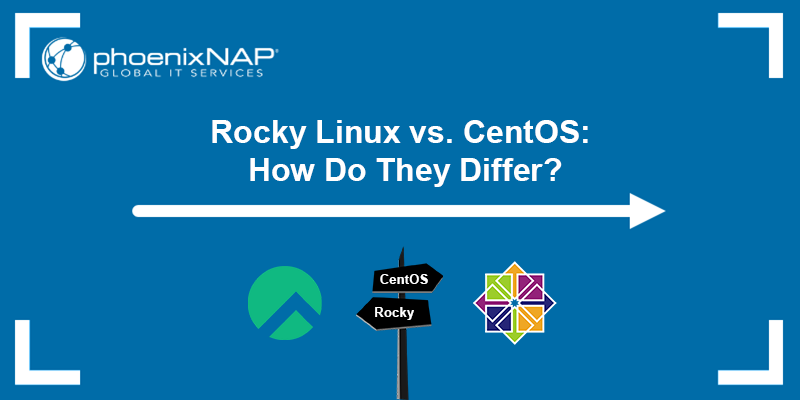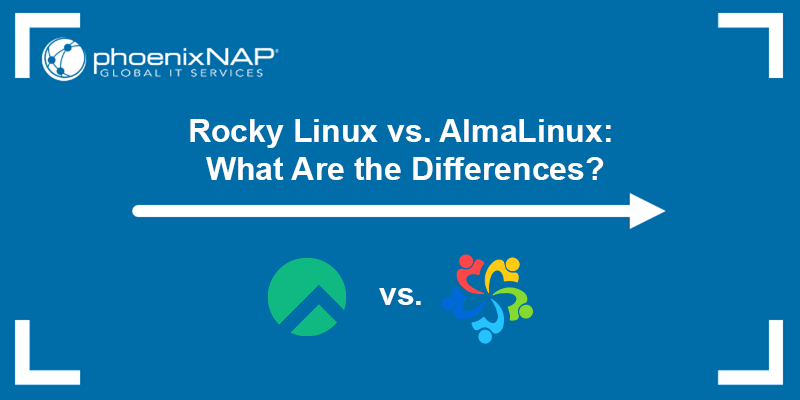Rocky Linux and Ubuntu are two competing Linux distributions. Both distributions aim to be reliable and suitable for different use cases. Although there is no correct option, the choice can have impacting effects. Analyzing the different features of both will help you make an informed decision.
This article compares the key features of Rocky Linux and Ubuntu.
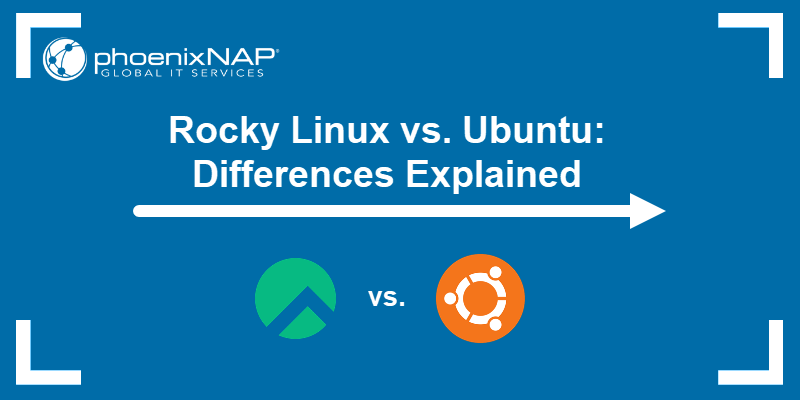
Rocky Linux vs. Ubuntu: Overview
Rocky Linux and Ubuntu have different features and functionalities. The table below provides a high-level overview:
| Feature | Rocky Linux | Ubuntu |
|---|---|---|
| Base | Red Hat Enterprise Linux (RHEL). | Debian. |
| Usage | Enterprises and IT professionals. | General-purpose, developers, enterprises. |
| Desktop environment | GNOME. | GNOME (Ubuntu Desktop). |
| Package manager | DNF. | APT. |
| Release model | Rolling release for minor changes. Long-term support (LTS) for major changes. | Regular and Long-term support (LTS) releases. |
| Support | Community and paid support through vendors. | Community and Canonical's paid support. |
| Cloud integration | Focus on private and hybrid cloud deployments. | Extensive public cloud features. |
| Security | SELinux and advanced system auditing. | AppArmor and automated security updates. |
| Customization | Highly customizable for enterprise environments. | User-friendly customization. |
| Installation tools | Kickstart. | Cloud-init. |
The following sections analyze these features and other aspects in greater depth.
Rocky Linux vs. Ubuntu: In-Depth Comparison
Both Rocky Linux and Ubuntu have many compelling features. Learning about the key differences requires carefully analyzing their unique features. The sections below break down different features in greater detail.
Market Share
Rocky Linux targets enterprise environments. It was created as a CentOS alternative and appeals to organizations that need RHEL compatibility. Although it has a smaller market share, IT professionals and enterprises consider it a trustworthy system due to its stability.
Ubuntu has a much larger market share compared to Rocky Linux. The distribution is widely used as a desktop, server, and cloud OS. Ubuntu is a versatile and community-supported distribution, and it is often a first choice for many new users and developers. Ubuntu also has a strong cloud presence and is supported by many major cloud providers.
Ease of Use
Rocky Linux is better suited for advanced users and IT professionals. The system requires familiarity with RHEL-based systems or previous experience with Linux systems. It's highly configurable and reliable for addressing different enterprise needs.
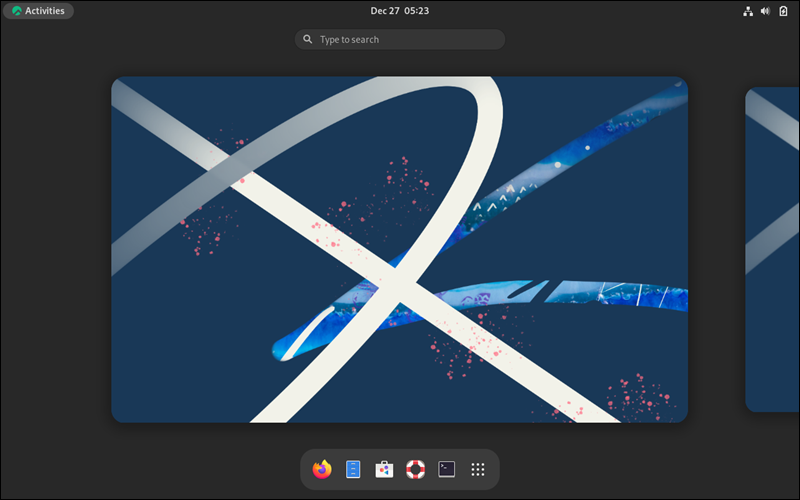
Ubuntu is user-friendly and is often recommended as a starting point for users looking to switch to a Linux-based OS. The GNOME Ubuntu desktop environment is simple to navigate, and extensive documentation lowers the learning curve.
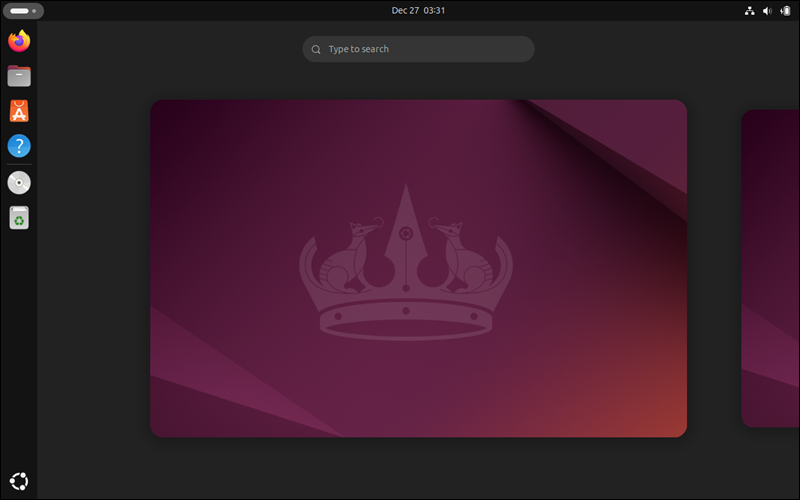
Support
Rocky Linux has community-driven support and paid support via third-party vendors. The Rocky Linux Foundation guarantees access to a stable and consistent platform, while enterprise-level support is left to external providers. Organizations can choose custom support packages based on their requirements.
Ubuntu offers strong community support and paid support from Canonical. Canonical's plans include extended security maintenance to update older systems. These plans focus on security and compliance but are less comprehensive than options in Rocky Linux. Paid support tends to be more expensive.
Cloud Integration
Rocky Linux focuses on private and hybrid cloud deployments. Its RHEL compatibility ensures smooth integration with enterprise cloud solutions, making it a top choice for businesses with strict cloud regulations.
Ubuntu, by contrast, excels in public cloud environments. It offers pre-configured images for cloud platforms to simplify scalability and public cloud deployments. The focus on public cloud services makes Ubuntu a widespread choice for developers and startups.
Security
Rocky Linux uses SELinux to create advanced security policies. It also includes detailed system auditing tools essential for creating a robust protection system. These features ensure compliance with modern security standards, which makes Rocky Linux ideal for high-security systems.
Ubuntu uses AppArmor for application-level security. Security updates are automatic, a great feature for those who prefer out-of-the-box security. Backporting and patching ensure that releases remain secure and functional.
Note: For more details, see our in-depth comparison between AppArmor and SELinux.
Customization
Rocky Linux offers customization capabilities that are suitable for enterprises. System administrators can adjust various configurations to address different workload scenarios. It's a flexible choice for custom-tailored deployments and evolving workloads.
Ubuntu features user-friendly customization possibilities that are suitable for different user types. Developers and casual users prefer Ubuntu for its flexible settings that allow system customization without a steep learning curve.
Installation Tools
Rocky Linux uses Kickstart to automate unattended installations for large-scale deployments and managing multiple servers. Rocky Linux uses the DNF package manager as a CLI tool and the GNOME Software as a GUI-based installer for software management.
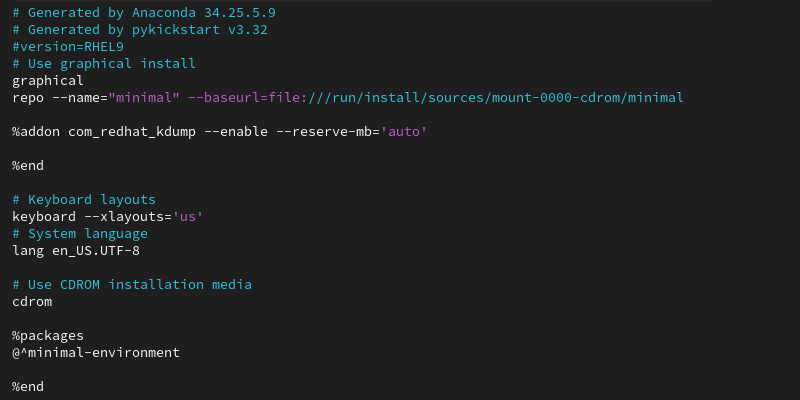
Ubuntu uses cloud-init to automate unattended installations and streamline deployments, especially in cloud environments. The APT package manager handles Software management on Ubuntu for command-line usage, while the Software Center provides a graphical interface for managing applications.
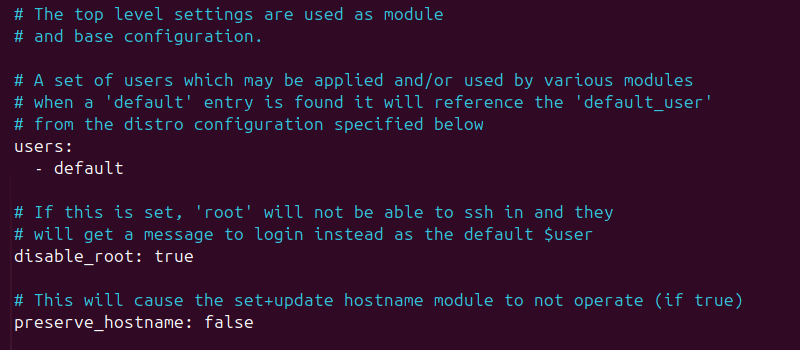
Updates
Rocky Linux uses a rolling release model for minor updates to maintain its compatibility with RHEL's lifecycle. The model helps minimize disruptions while delivering consistent updates. Major updates align with RHEL releases to create a predictable and stable environment.
Ubuntu has a regular release schedule. Standard releases come every six months, while LTS releases are supported for up to five years. This model is ideal for users seeking the latest features or a stable, long-term solution.
Performance
Rocky Linux excels at enterprise-grade workloads. It is suitable for database management, virtualization, and high-availability systems. Performance is optimal for stable and scalable environments.
Ubuntu is more general-purpose when it comes to handling variable workloads. It works efficiently for different environment types, from desktops and development machines to cloud deployments. Ubuntu has a lightweight server variant that focuses on efficient resource use, and it is ideal for containerized or cloud-native workloads.
Use Cases
Rocky Linux is an ideal distribution for enterprise servers, virtualization, demanding environments, and systems requiring RHEL compatibility. It's especially suitable for businesses looking to migrate from CentOS.
Ubuntu is an excellent distribution for development environments, different cloud deployment models, desktops, and IoT applications. Its focus on user-friendly features is why Ubuntu is the recommended distribution for general use and software development.
Conclusion
This guide explained the key differences between Rocky Linux and Ubuntu. Both distributions have advantages and cater to different audiences. The choice between the two depends on your current environment and future goals.
Next, see our in-depth comparison between Debian vs. Ubuntu servers or Rocky Linux vs. AlmaLinux.
